Any sensible person can see that there is something seriously wrong with many American universities.
For several decades many of our most prestigious seats of learning have become hostile to free speech and genuine inquiry. Speech codes have been introduced to prevent so-called ‘micro aggressions’.
Speakers that do not subscribe to ‘woke’ orthodoxies have been ‘de-platformed’. Those that do get invited on to campus risk being mobbed, as recently happened to a federal judge at Stanford and Riley Gaines at San Francisco State
Intellectual inquiry, too, has narrowed. Anyone presenting ideas outside the approved parameters risks having their career terminated. (See what happened to Harvard’s then President, Larry Summers, in 2006 when he suggested that genetics might help explain why there are more male than female scientists.)
Then on October 7th, Hamas slaughtered over a thousand Israelis, most of them civilians. Far from condemning the massacre, student groups at Harvard, Cornell and other universities, rushed to issue statements attacking Israel.
Anti-Israel protesters on campus made statements and chanted slogans that went beyond being merely rude or unpleasant. Some seemed antisemitic. Others sounded like they were calling for a Jewish genocide.
How come those campus speech codes suddenly no longer applied? Having spent years policing what could be said to avoid ‘micro aggressions’, where were the university authorities when Jewish students faced actual aggression?
Giving evidence before a Congressional committee the other week, Claudine Gay of Harvard appeared to suggest that however unpalatable the protesters might be, it was all part of their right to freedom of speech. “Our university embraces a commitment to free expression” she said. Both she, and Liz Magill of Penn, failed to confirm that calls for genocide of Jews violated the university’s code of conduct.
Free speech appears to apply at these universities when you want to call for genocide, but not if you want to talk about genetics.
Watching both Gay and Magill give evidence, they both appeared out of their depth. I may not have been the only person left wondering how either of them was appointed to their respective roles in the first place. (Some have unkindly suggested it may have something to do with ‘woke’ hiring practices.)
The problems at US universities run deeper than just a handful of poor appointments.
Many US universities, including some right here in Mississippi, have DEI, or Diversity, Equity & Inclusion, programs. This needs to stop. Now.
DEI can sound entirely harmless. Who could possibly be against supporting different groups of individuals, including people of different races, ethnicities, religions, abilities, genders, and sexual orientations? Pretty soon, however, DEI proves to be something much more sinister.
In the name of diversity, some US universities have been systematically discriminating against some Americans on the basis of their race, limiting admissions to ‘overrepresented’ groups. In the name of equity, US universities have set out to address structural inequalities – historic and current – that advantage some and disadvantage others. In the name of inclusion, those with the wrong views are excluded.
DEI is flawed because it demands we think in terms of groups of individuals, rather than just individuals. Universities that apply DEI no longer treat everyone on campus equally, but on the basis of their immutable characteristics. DEI is a fundamentally un-American ideal.
DEI is also a formula almost guaranteed to produce institutional incompetence. Imagine, for a moment, that your favorite football or basketball team was to be run on the basis of DEI. If they recruited players on the basis of something other than their ability to play the game, they would lose. It makes no sense to run a public university that way.
What is to be done?
Last week, the Governor of Oklahoma, Kevin Stitt, showed the way. He issued an executive order banning DEI programs in public universities. Mississippi needs to do something similar.
An executive order in Mississippi could prohibit public universities from using state funds, property or resources for DEI initiatives.
To be sure, if the Governor was to do this in Mississippi there would be howls of protests. Various pundits would whine. It is what pundits do. Some will scream “supremacist!”. There is nothing supremacist about insisting every American is treated equally. Others will warn that unless we continue to pay DEI staff six figure salaries Mississippi will somehow regress.
I suspect most Mississippi parents wanting the best for their children would breathe a sigh of relief knowing that the sort of scenes we witnessed at some of those so-called ‘elite’ institutions never happen here.
If we want to stop the ‘woke’ takeover of our institutions, we need to act now.
The movement for school choice in Mississippi has momentum.
There is a growing chance that we will see a move to create a universal Education Savings Account for every child in Mississippi, similar perhaps to those in surrounding states such as Arkansas.
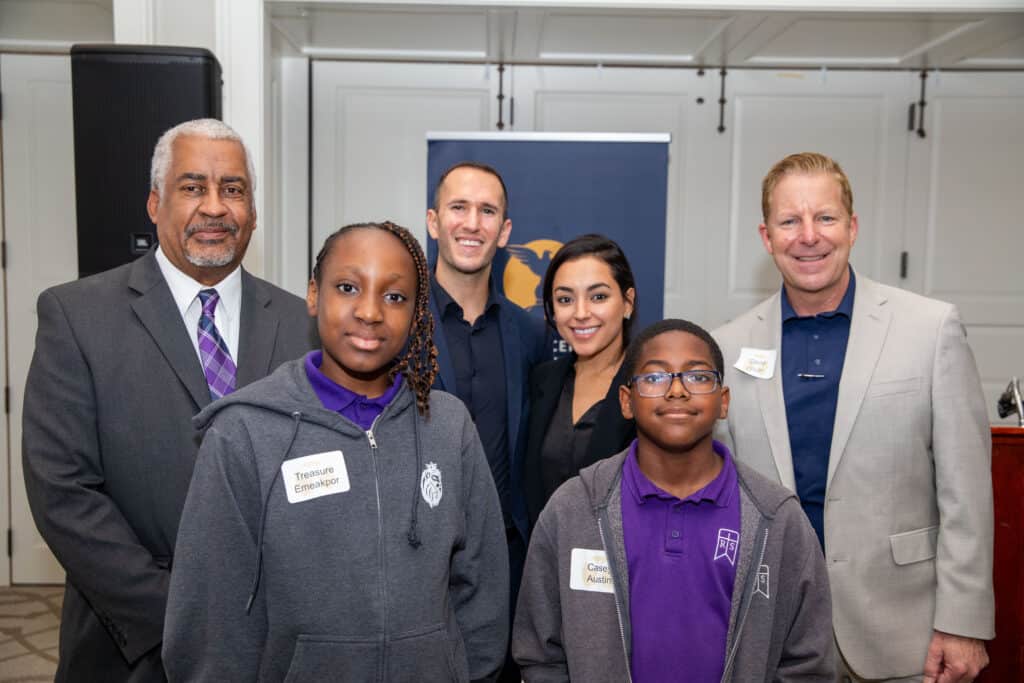
Fearful of this, ideologues opposed to parent power are starting to marshal dishonest arguments against school choice.
Some have started to suggest that creating Education Savings Accounts in our state would be somehow unconstitutional, citing a case currently before the state Supreme Court regarding the use of American Rescue Plan Act (ARPA) funds in support of this idea.
The argument that the constitution prevents Mississippi establishing a program of universal Education Savings Accounts is nonsense. Many of those making it must know it is a nonsense.
The danger is that those looking for a convenient excuse not to support education freedom in Mississippi will latch on to these bogus arguments.
“Of course, I personally support school choice” some will say. “But sadly, our constitution means that we just can’t have the type of system they have in Arkansas”.
To ensure that every lawmaker knows that there is no constitutional impediment to establishing Education Savings Accounts in Mississippi, we have prepared the following briefing note, and sent it to every lawmaker.
No one that reads it can credibly claim that there is a constitutional impediment to school choice in our state.
Political change unfolds in three stages. First, when a new idea comes along, they will say that such reform is unthinkable.
Then as the idea starts to take hold, opponents admit that it might be a good idea after all, but it is unfortunately impractical. Finally, at the third stage they will tell you it was their idea all along.
School choice, the idea that we give families control over their child’s education tax dollars, is no longer unthinkable. Several states, including our neighbour, Arkansas give each child an Education Freedom Account, into which the state pays about $8,000 – 10,000 each year.
Mom and dad are then able to allocate that money to either a public, private or church school of their choice. They are even allowed to use the funds to home school their kids. School choice is now a reality in half a dozen states across America.
Why don’t we do something similar in Mississippi?
Those opposed to putting parents in control in our own state have switched from principled objections to the more practical sort of excuses.
A recent article in Mississippi Today, for example, asserted that the Mississippi Constitution precluded school choice, citing section 208 and referencing a case currently before the state Supreme Court.
During Covid, the Mississippi legislature authorized a state agency to distribute about $10 million of federal Covid relief funds to private schools for infrastructure improvements. The decision has been challenges by an activist group who argue that Section 208 made such payments unconstitutional.
Even if our state Supreme Court rules that the provision of $10 million in federal relief funds to private schools was unconstitutional, that decision would not prevent Mississippi from enacting school choice programs, including those available to families using non-public schools.
The Mississippi Constitution only prohibits the appropriation of state education dollars for institutional aid to non-public schools. It does not prevent the state from providing individual aid to students who choose to use those funds for tuition at non-public schools. Indeed, to avoid future confusion on that point, our legal division, the Mississippi Justice Institute, asked the Court to explicitly say so in its ruling.
A second practical objection we are starting to hear is that school choice will not work in rural areas that only have one available local school.
Surely a lack of options is a reason to extend choice, not to limit it? If there is only a single school available, all the more important that we allow families to use some of their children’s tax dollars to pay for additional tutoring, or some alternative lessons, on top.
Others object to school choice on the grounds that it would defund public education. Allowing families to choose their grocery store does not ‘defund’ Walmart. Allowing families to choose their school does not ‘defund’ public schools.
Since when did those tax dollars belong to the school board bureaucracy? Our tax dollars are there to educate our children. School choice would give every family the opportunity to choose what is best for their children.
When opponents of parent power claim that giving families control over the money would mean less money for school board bureaucrats, they are making an important admission. They are acknowledging that if they were able to, some families would chose something different.
Over the coming months, we will hear all kinds of practical excuses advanced against parent power. Do not be discouraged. Those citing practical objections against parent power are doing so because they have had to abandon any principled opposition. Once that process begins, the case against school choice begins to crumble. Momentum for change will only grow.
Parents, children, lawmakers and educators gathered at an ‘Education Freedom Rally’ in Jackson on Wednesday.
The event, hosted by the Mississippi Center for Public Policy, was attended by over 120 people, with representatives from half a dozen different organizations taking part.
“Last week saw the Republicans win a super majority in Mississippi. Parents at our rally would like to see them use that majority to achieve major strategic change in Mississippi education,” explained Douglas Carswell, CEO of the Mississippi Center for Public Policy.
Corey DeAngelis of the Federation for American Children spoke at the event, explaining why school choice is essential in order to improve education in Mississippi.
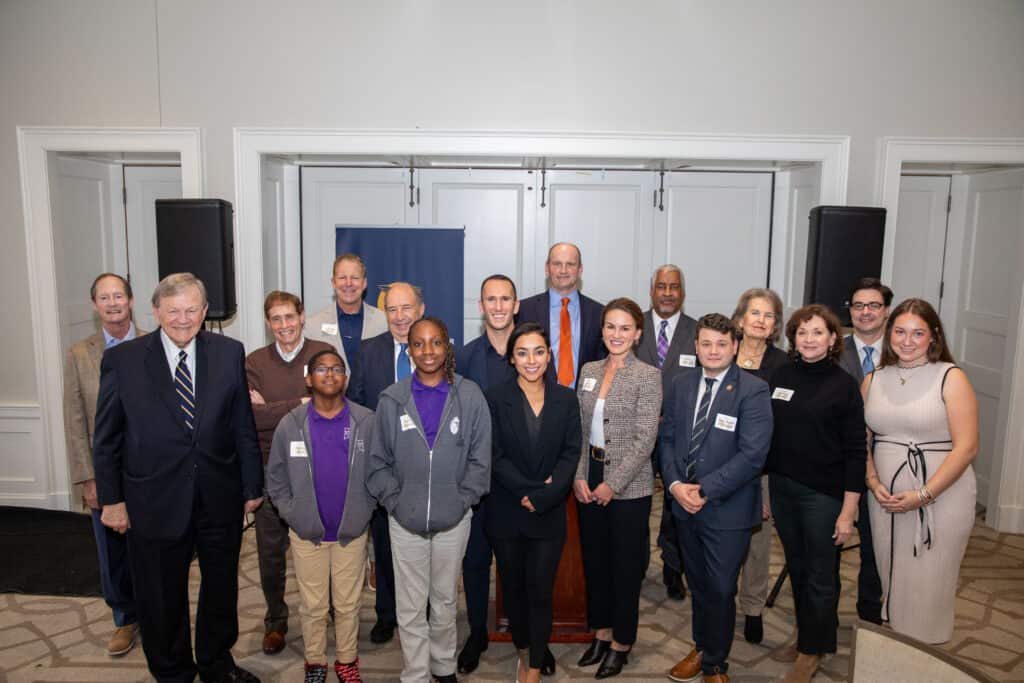
Over half a dozen states – including neighbouring Arkansas - now have universal school choice programs, with families having control over their child’s education tax dollars. Families in Arkansas can now allocate that money, worth about $9,000 - $10,000 a year to a school of their choice.
“Moms and dads in Arkansas can spend that money from the government to send their child to a public school, private school, church school, charter school or even home school. They can even use the money to buy their child extra tuition if they need support in certain subjects,” Carswell explained. “We believe families in Mississippi should have the same right.”

Rep Aaron Pilkington, one of the cosponsors of Arkansas reforms, spoke at the event, explaining how school choice could be implemented in Mississippi.
Also speaking at the event were children from the Redeemer’s School in Jackson. They explained how important school is to them, and how attending Redeemer’s has given them great opportunities.
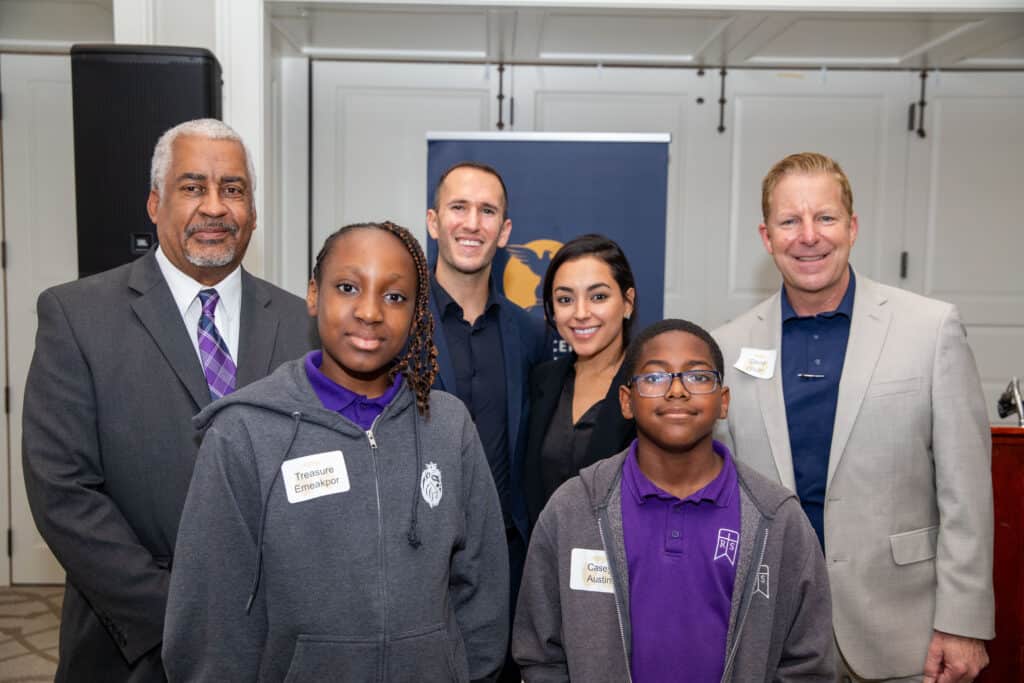
Leading advocates for education freedom are meeting in Jackson, Mississippi, on Wednesday November 15th to push for reform.
Corey DeAngelis, a senior fellow at the American Federation for Children, and one of the most prominent school choice advocates in America, will be joined by Rep Aaron Pilkington, a co-sponsor of the Arkansas LEARNS act. Also in attendance will be representatives of PragerU and ACE Scholarships.
The Education Freedom event, hosted by the Mississippi Center for Public Policy, will discuss what Mississippi could learn from states that have adopted education freedom.
“Last year, the Republicans in Arkansas used their super majority to undertake major education reform,” explained Douglas Carswell, CEO of the Mississippi Center for Public Policy.
“Arkansas passed the LEARNS Act, which significantly raised teach pay, frees teachers to teach and gives parents more control over their children’s education. Could Mississippi achieve something similar?”
“Improving education has got to be the number one priority for anyone interested in a better Mississippi”.
“I am really pleased that we are joined by Rep Pilkington, one the architects of Arkansas reforms. He will be explaining how Arkansas achieved strategic change”.
Over the past three years, half a dozen states have enacted education freedom reforms. Last month, Louisiana elected Jeff Landry governor on a pledge to introduce education freedom reforms. Alabama is considering similar reforms.
“Mississippi could soon be surrounded on three sides by states that have education freedom. We need to see a LEARNS Act for our state”.
“I am thrilled that we have over half a dozen different organizations represented at the event. We need a broad coalition to achieve change”.
An education revolution is underway across America. A growing number of states have embraced school choice. West Virginia and Arizona lead the way two years ago by giving families control over their children’s tax dollars.
Arkansas, Iowa and North Carolina then followed. Leaders in Louisiana and Texas have been elected to do something similar.
I believe it is time for Mississippi to embrace Education Freedom, too. Rather than being a laggard in the education revolution, Mississippi ought to be leading it.
We need a plan to make the case for Arkansas-type reform in our state, persuading lawmakers and officials, and building a broad coalition for change.
To kick start this campaign, we are hosting a meeting on November 15th with Fox News contributor, Corey DeAngelis. We will be joined by lawmakers from Arkansas that helped make school choice happen over there, and by PragerU.
What would Education Freedom mean in Mississippi in practice?
A few weeks ago, I went on a fact finding trip to Little Rock, Arkansas to learn how Governor Sarah Huckabee Sanders made Education Freedom a reality.
Under the so-called LEARNS Act, every child in Arkansas will be allowed an Education Freedom Account, with 90 percent of the prior year’s average per pupil spending paid into it. To give you an idea, that could be about $10,000 per year controlled by each family per child.
In Arkansas, families will be free able to allocate that money from 2025 to pay for their child’s tuition, school fees, school supplies and even school transportation costs. Moreover, the parents can chose to spend that money in a public school, or a private school, or even through home-schooling.
I believe that Education Freedom is the single most important thing that we need to do to improve Mississippi for the better. While there has been some progress in education with the adoption of phonic teaching, I think everyone would agree that there are still far too many young Mississippians not proficient at math and English.
Education Freedom is the key way to build on the improvements that there have been. It is also the essential step needed to improve the overall performance of our state, since educational attainment is so critical for success in other areas.
If you would like to learn more about our campaign, please email me at [email protected]
Following Hamas’ terror attack on Israel, tens of thousands took to the streets. They marched in Manhattan and Chicago, as well as London and Paris. Rallies were held on the campuses of colleges across America.
Were the protesters lamenting the death of Israeli civilians? Not at all. Were they there to demand the release of young children taken hostage by Hamas? I missed that bit.
Instead, in the wake of a pogrom that saw the murder of 1,400 Jews, tens of thousands of Americans marched in support of their killers. The protesters literally chanted for the destruction of the state of Israel.
How can it possibly be that the great grandchildren of the generation of Americans that liberated Dachau could think this way?
For a generation, ‘woke’ ideas have been left to fester on college campuses. Over the past few weeks, we have started to see the real world consequences.
If we are to put this right, we first need to understand what has gone wrong. Looking at the protesters on social media, I was struck by the farcical contradictions.
Feminists were out there in support of an Islamist ideology that denies women rights. Self-styled democrats sided with those seeking to establish a theocracy. On social media, I saw a group calling themselves “Queers for Palestine”, holding aloft a rainbow motif. How long do you imagine they would survive in Gaza?
This confusion by the pro-Hamas protesters, which would be comical if it were not so grim, points to the root cause of the problem; for millions of young Americans, a creed of cultural relativism has been allowed to establish itself as a secular belief system.
If all cultures were of equal worth, then every culture would be as capable of producing science, innovation and political liberty – not to mention a US Constitution. Most cultures are not.
The trouble is that if you refuse to accept that some ways of life are better than others, you have no means of measuring what is good. In your twisted belief system, the head hackers of Hamas are no different from the Golani reservists prepared to take great personal risks to minimize civilian casualties.
Cultural relativism begins by applying double standards. It rapidly descends to favoring the non-Western over the Western.
Taught to believe in decolonizing the curriculum at school and university, perhaps you start to see Hamas terrorists as noble savages, battling to decolonize Palestine from the wicked West. Often unconsciously, we have raised an entire generation to see the human condition as Rousseau perceived it, rather than though the hard-headed realism of Hobbes. No wonder some then think like latter-day Jacobins. No surprise that the BBC, a once credible organization, refuses to call Hamas terrorists.
Ambivalence about the Western way of life slips into open animus.
“But what do you mean by Western way of life?” some will ask. “What do people living in the southern US or in Scandinavia possibly have in common with those in the Negev? There is no single Western culture”.
Culture is indeed complex, like the branches of a very tall tree. But within the tree of culture there is a definable trunk that one might call Judeo-Christian culture, from which extend a multiplicity of off shoots.
Culture, as with the branches of a tree, can sometimes be grafted, some cultures fused onto another. You even get what arborists call ‘inosculation’, when branches that had separated fuse back together as one again.
But as any arborist also knows, not every kind of graft will work. Not every kind of culture can be fused with every other. Some are incompatible. Nor can every way of life coexist alongside every other. Those Western feminists marching in support of Hamas seem not to have understood this. Their children and their grandchildren will.
Nor, perhaps, have Western progressives understood that Western culture, whether we are conscious of it or not, is a product of a distinctive set of ideas, both secular and ecclesiastical. I doubt many atheists would appreciate me pointing it out, but even their humanist belief system is a product of something uncontestably Judeo Christian. (Try living under Hamas as a secular humanist and see how long you last).
None of this really matters when everyone around us shares the same underlying Western cultural assumptions. To a degree that might surprise both evangelicals and atheists, they fundamentally do share a common set of assumptions. The trouble is that there is a growing body of those living in the West that don’t. There are an increasing number of people in the US, Britain and Europe – not to mention the Middle East - whose world view is shaped by the ideology of political Islamism, and Islamism’s principle proponent, Sayyid Qtub.
When political Islamism comes into conflict with Western ways, as it has with increasing frequency since the Salman Rushdie affair in the 1980s, the cultural relativists living in the West have no idea where to draw the line. Indeed, they do not even appreciate that there is a line to be drawn.
“But what about the sins of Western culture?” some will counter. “Weren’t Western countries once at the center of the slave trade? Didn’t women and minorities have to endure unequal treatment within living memory?”
Almost every contemporary non-Western culture around the world today falls short of the standards set by campus progressives. Only in the West are individual rights respected, often at times imperfectly (as the campus puritans are quick to point out). Anyone who does not know that may not know much about life outside America.
That the West today is a far more pleasant place for minorities than it was in the past is not evidence of Western guilt. It shows that cultural progress is possible. The way we used to live is not as good as it is today. Not every way of living is of equal worth. That cultural progress is possible is proof that cultural relativism is a nonsense, and that some ways of life are worth fighting in preference to others.
Here in the southern US, the Mississippi Center for Public Policy tries to teach a cohort of young Americans some of the underlying ideas and principles that underpin Western liberty. Through our Leadership Academy, we introduce them to the history of Western thought – Hobbes, Locke and the Founding Fathers. We discuss with them the morality of the free market, and American exceptionalism.
Students graduating from our program will, I hope, see the world very differently from the day they started. The insights and lessons we teach will, I hope, remain with them for life.
When we launched the Academy two years ago, I saw it was important, but no more than a nice-to-have. After the events of the past few weeks, I see it as perhaps the most important thing a think tank in America could be doing.
Green energy – folly or the future?
Former White House energy adviser, Mark Mills, addressed at a packed lunch meeting in Jackson, Mississippi, at an event attended by key state policy makers and members of the public.
Mills, a senior fellow at the Manhattan Institute, talked about some of the implications of the rush to renewable energy. In order to meet net zero carbon dioxide emissions targets, Mark Mills outlined the scale of infrastructure construction that would be required.
“Mark Mills has an encyclopaedic knowledge about energy policy. He laid out some of the hard facts about what it would take to ditch our dependence on oil and gas.” said Douglas Carswell of the Mississippi Center for Public Policy.
“Mark Mills warned about making the same mistake that Germany has made. Over there, politicians rushed into renewable energy, and in doing so pushed up the cost of energy. This has now priced German industry out of the world market” Carswell added.
“If Mississippi wants to keep on attracting more industry, we need to ensure that we continue to have a plentiful supply of affordable energy”.
“Transitioning to renewables might sound like a bright idea in Washington DC” Carswell added. “Mark Mills showed that unless the federal government can change the laws of physics it is just not realistic. America would need to install thousands of new giant wind turbines each week, cover a vast area in solar panels and build dozens of new nuclear plants each year.”
“Politicians might talk glibly about moving to electric vehicles” he added. “Mark Mills pointed out that we would need hundreds of new charging stations, each one requiring the same amount of electricity as a steel mill. The capacity and infrastructure simply won’t be there to achieve this rush to renewables”.
The event was hosted jointly by Bigger Pie Forum and the Mississippi Center for Public Policy. Several members of the state legislature and Public Service Commissioners attended and asked questions.
To watch Mark Mills, talk online, click here:
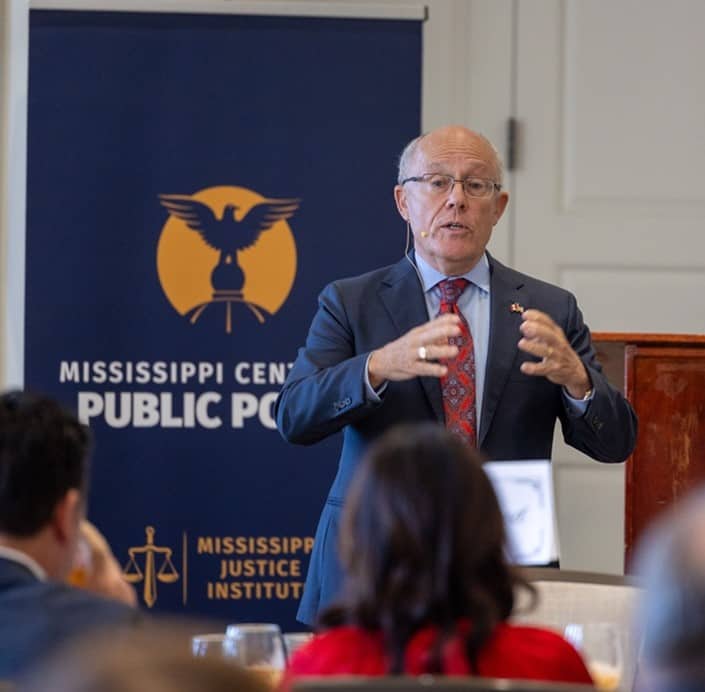
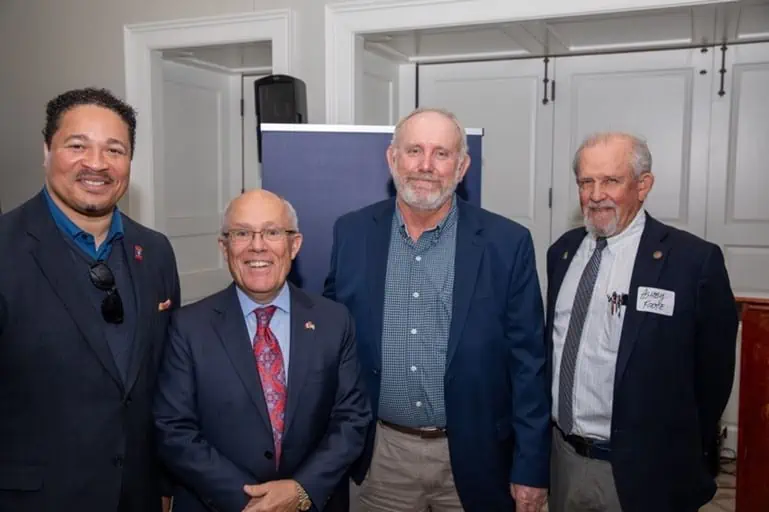
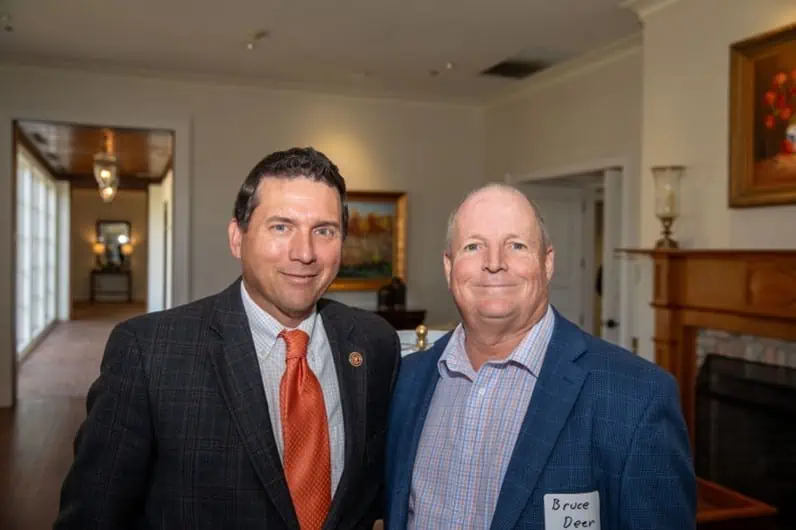
The scenes we saw from southern Israel were gruesome. Two hundred and fifty young people at a music festival murdered. Elderly people waiting at a bus stop gunned down. Women and children abducted at gun point, and carried off to a grislycaptivity at the hands of Hamas.
Hamas’ attack on Israel could not conceivably serve any conventional military purpose. The aim of the attack was to kill and abduct as many civilians as possible. Indeed, theIsraelis suspect that the ‘Tribe of Nova’ music festival, apparently advertised all over social media, was specifically targeted by Hamas.
How should the United States respond?
First, Americans should remember why they support Israel. A tiny slither of land less than a fifth the size of Louisiana, Israel is the only democracy in the Middle East. In Israel, as in America, government comes from the people and by the people.
The only example of an open society in the Middle East, Israel is a social and economic success story. So much so, in fact, Israel’s very existence is a rebuke to the theocrats and thugocracies that surround her. This is why those theocrats and thugs seek her destruction.
It is easy to support Israel today when the images of the latest atrocities are fresh in our minds. But we need to brace ourselves to give Israel moral support in the bleak months ahead.
Even now, as Hamas paraded their helpless hostages in Gaza, there are no shortage of Western ‘intellectuals’ quick to come out in support of such savagery. Those anti-Israel voices will only grow louder as Israel undertakes the grim task ofneutralising further threats from Hamas in Gaza, and possibly even Hezbollah in the north.
One immediate consequence of Hamas’ attack has been to put Israel’s peace talks with Saudi Arabia on hold. Indeed, that might have been Iran’s intention in helping encourage and orchestrate the terror attacks, as some reports now suggest seems likely.
The atrocities in Israel should be a wakeup call for America’s foreign policy establishment. For two decades, Western countries have tried various initiatives to reach out to Iran. Doing so, we were told, would encourage ‘the moderates’ in Tehran. Handing over billions of dollars, according to many ‘experts’, would bring about a rapprochement.
Today, there is not much sign of any moderation by Iran. Nor have we seen a softening of Tehran’s position. What we have seen are a lot of dead young Israelis at a music festival, killed by Iranian-backed terrorists.
We must no longer pretend that we can deal with Iran as a normal nation.
For as long as I can remember, all the sensible foreign policy people in Washington and London talked about the need for a two state solution in the Middle East. Today we can see what Hamas are really like, and I wonder if there is anything sensible about giving such people sovereignty over anyone.
My greatest concern in the aftermath of these attacks in not with the Middle East, but with America.
As news of the atrocities was being reported, several mainstream broadcasters insisted on calling the perpetrators ‘militants’, rather than ‘terrorists’. In several cities in Europe and north America, we saw pro-Palestinian protesterschanting for the destruction of Israel.
At Harvard, 31 student groups, including the Muslim Student Association and Students for Health Equity and Justice in Palestine, issued a statement blaming Israel for what happened.
Maybe years of ‘woke’ teaching and recruitment at elite institutions comes with consequences?
After decades of promoting cultural relativism, the absurd idea that all cultures are of equal worth, we end up with an intellectual ‘elite’ unable to differentiate between an imperfect democracy, Israel, and a gang of savages, Hamas.
It is this that really ought to concern us. Would you be happy having people that think this way running the State Department in 30 years time?
Israel, like America, has the munitions and the manpower she needs to defend herself against those intent on undermining her way of life. For now. What we must fear instead is the moral disarmament of the West that has been happening one campus at a time.
